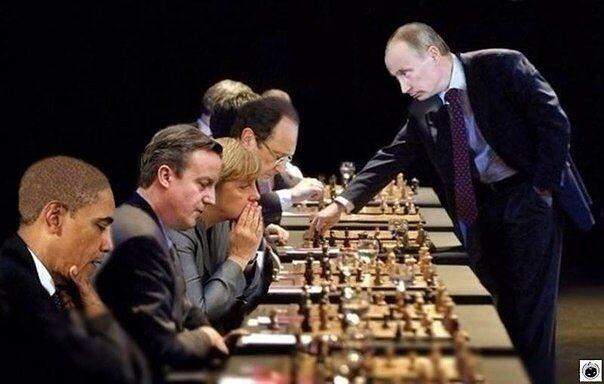– Barter Agreement Between Russia and Iran Sidesteps Sanctions (Russia Insider, April 16, 2015):
Although Russia claims the agreement on a barter system with Iran was designed in order not to run afoul of the sanctions, the deal still could add further strain in its relations with its fellow P5+1 negotiator
This article originally appeared at Oil Price
An oil-for-goods barter system between Iran and Russia is well under way and is not affected by the sanctions imposed on some trade with Iran because of its nuclear program, according to Russia’s deputy foreign minister, Sergei Ryabkov.
So far, the system, designed to last five years, is operating on a “very significant scale,” Ryabkov told legislators on April 13 in Moscow. “In exchange for Iranian crude oil supplies, we are delivering certain products,” he said. “This is not banned or limited under the current sanctions regime.”
He said the goods Russia was supplying include grains, construction equipment and other machinery to Iran in return for oil, but didn’t get more specific.
It’s not clear exactly when the bartering began. In December Iran’s Trade Ministry confirmed that it would begin with the delivery of Russian grain to Iran. At that time, the director of Russia’s United Grain Co. said deliveries could exceed 2 million tons a year.
The sanctions, which the United Nations first imposed nine years ago, forbid most trade with Iran because of its nuclear program, which Tehran says is for peaceful purposes but many nations suspect is meant to develop a nuclear weapon.
Russia has been a part of the negotiations with Iran along with the other four permanent members of the UN Security Council – Britain, China, France and the United States – plus Germany to have Iran’s nuclear program strictly monitored and limited. Iran and this group, known as the P5+1, reached an interim agreement on April 2.
If that tentative agreement becomes final by June 30, many of the sanctions would be lifted, giving Russia and other countries the opportunity to increase their commercial relationships with Tehran with fewer of the constraints required under the current sanctions regime.
In the meantime, Moscow and Iran are relying on the system under which Iran supplies Russia with as much as 500,000 barrels of its oil per day in exchange for the Russian goods in a deal that would involve bartering installments of between $6 and $8 billion, worth a total $20 billion.
Although Russia claims the agreement on a barter system with Iran was designed in order not to run afoul of the sanctions, the deal still could add further strain in its relations with its fellow P5+1 negotiators. Already Moscow’s relations with the West are at their lowest point since the Cold War, primarily because of Russia’s involvement in the crisis in neighboring Ukraine.
The United States has been aware of trade talks between Moscow and Tehran, and has warned that there would be consequences for any companies that violate the sanctions. A large amount of trade with Iran would have to wait until sanctions are gradually lifted, if the agreement over Iran’s nuclear program becomes final.
There is one voice, however, that says a final agreement should lead to the immediate lifting of all sanctions. That is the voice of Ayatollah Ali Khamenei, Iran’s supreme leader. But in an interview on ABC News on April 12, Kerry said that’s not part of the deal worked out by the negotiators.
“[T]he facts on which the parameters are based are facts. … [The Iranians are] going to put their spin on their point of view, and obviously, they’ll allege that we’re putting a spin on our point of view. But I will stand by every fact that I have said, stated publicly.”
